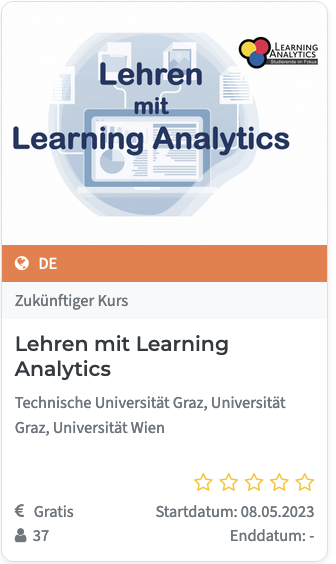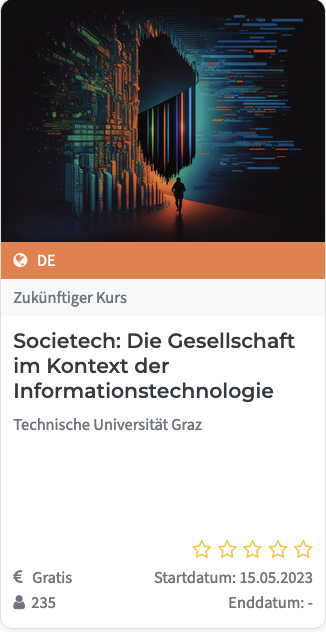We did a small contribution to the 4th International Workshop on Human-Centred Learning Analytics (HCLA) co-located with the 13th International Learning Analytics and Knowledge Conference (LAK2023) about our learning analytics efforts at Graz University of Technology. Our publication titled „Shaping learning analytics technology through human- centredness“ is now online availble, too
Abstract:
Learning Analytics (LA) researchers and practitioners are growing interested in applying human-centred design methods and techniques to design LA technology. This approach finds solutions by involving the perspectives of students, teachers, and other educational stakeholders in all process steps. It enables the creation of technology that resonates and is tailored to the end-users needs. The „Learning Analytics-Students in Focus“ project aims to support the learning and teaching process in the higher education context. Our interdisciplinary team focuses on LA technology that facilitates acquiring and developing students‘ self-regulated learning skills, such as goal setting, planning, monitoring progress, and reflecting. We embraced a Human-Centred Learning Analytics (HCLA) approach since the start of our project, and it helped us to understand students‘ points of view and needs and find solutions together. This article summarises the design process of a LA tool named Planner, which aims to support students in planning and monitoring coursework. We share our experience with various methods and techniques applied in our research and present insights about the benefits and limitations of the HCLA approach. Finally, we highlight how the HCLA approach helped to build a LA community at our university and promote trust towards LA.
[full article @ ResearchGate]
[full article @ workshop’s homepage]
Reference: Barreiros, C., Leitner, P., Ebner, M., Linstädt, S. (2023) Shaping learning analytics technology through human- centredness. In: Proceedings of 4th International Workshop on Human-Centred Learning Analytics (HCLA) co-located with the 13th International Learning Analytics and Knowledge Conference (LAK2023), Virtual, March 13, 2023




